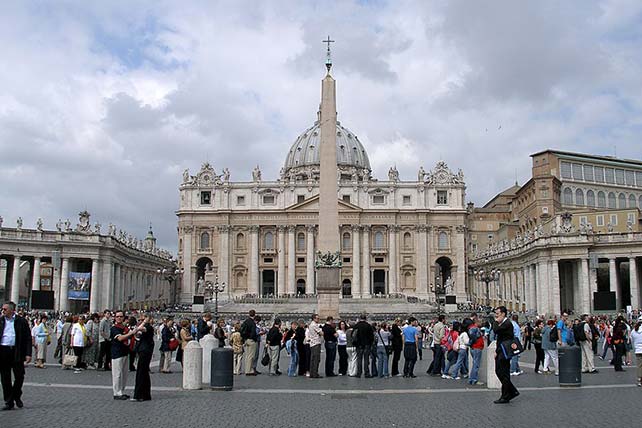More than anything, victims are often left unheard in the Italian legal system, the lawyer said, not only in cases of clerical abuse. The root of this indifference is to be found in “sexism and a patriarchal structure,” according to Caligiuri, which places a higher burden on victims to prove abuse cases.
“I have felt shame in watching how victims are treated” in the Italian and Vatican legal system, said Caligiuri, who has decades of experience in handling abuse cases in the country.
On Feb. 15, Rete L’Abuso joined eight other Italian groups to demand the Italian government launch an investigation into sexual abuse. The campaign, called “Beyond the Great Silence,” hopes to promote awareness and action with the use of the hashtag “#ItalyChurchToo.”
In dioceses around the world that have undergone investigations on sexual abuse cases, the percentage of abuser priests discovered has ranged from 4% to 5% — with the French report suggesting the number is closer to 7%. These statistics might prove damning for Italy — the country with the highest number of Catholic clergy in the world, exceeding 44,000.
“We cannot ignore the structural, cultural and ecclesial differences in our country compared to others, starting with the very high number of dioceses,” said Cardinal Gualtiero Bassetti, president of the Italian Bishops’ Conference or CEI, speaking to the Italian daily Il Corriere della Sera on Jan. 30.
For this reason, Bassetti suggested the investigation should take a “qualitative” approach that looks at abuse prevention efforts and formation of not only priests but laypeople as well. Pope Francis has urged Italian bishops to address the question of clerical abuse on several occasions, but so far, they have limited themselves to opening listening centers for victims and imposing a “moral obligation” to report sexual abuse to Italian authorities.
Bassetti is due to retire this year, and as bishop of Rome, Pope Francis will personally select the head of the Italian Bishops’ Conference. The bishops are currently divided over whether the sex abuse investigation should be handled by the church or outsourced.
But activists are tired of waiting for the church or the Vatican to act and think it’s high time for the Italian state to take the reins, something the United Nations also asked that Italy do in a scathing 2019 report.
“It’s inadmissible for the church to take over the competence of the state,” Caligiuri said, stating that a church-led investigation would constitute a conflict of interest. Only an independent parliamentary commission can help break “this conspiracy of silence,” he insisted.
This article originally appeared here.

